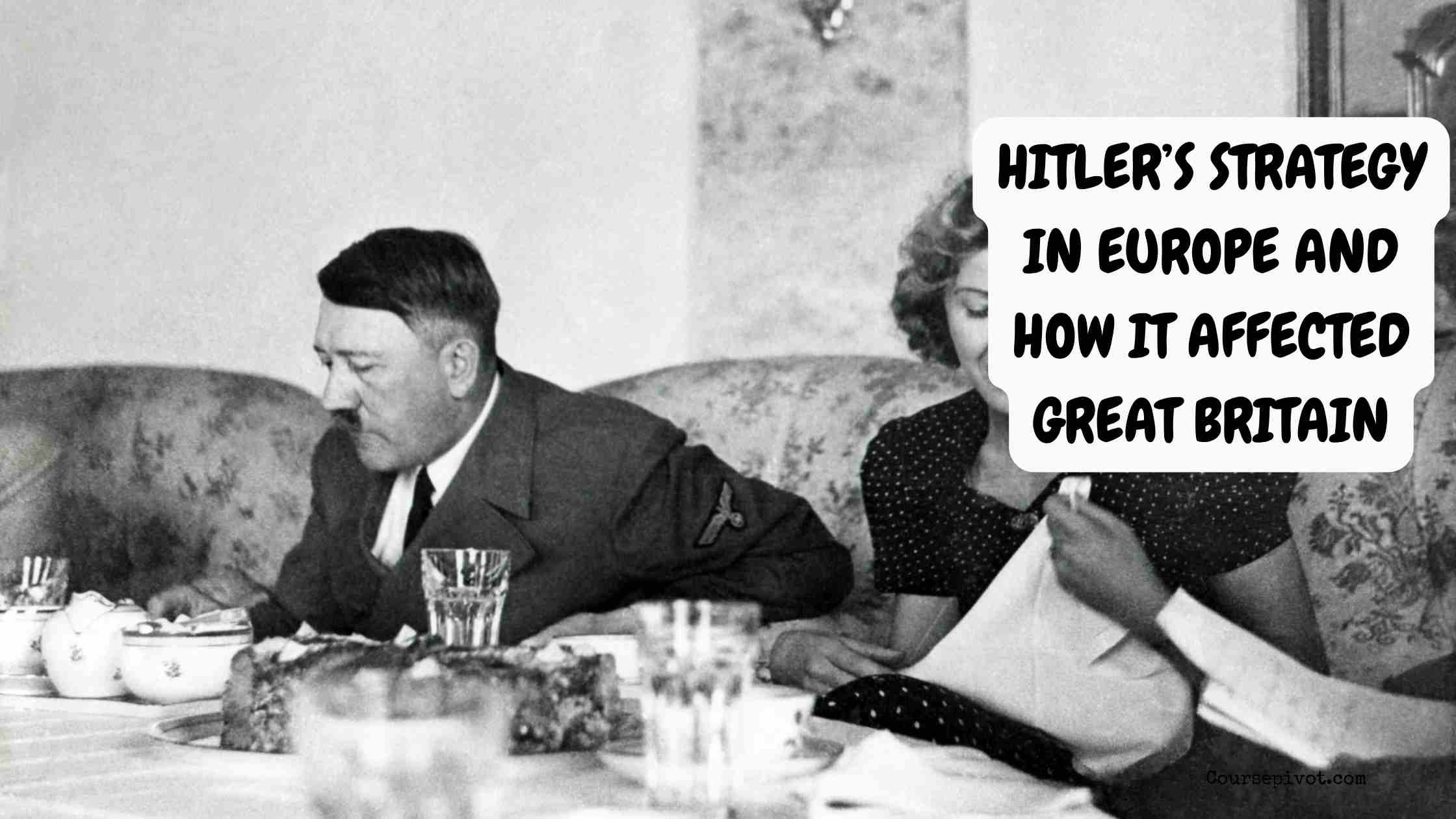
Hitler’s Strategy in Europe and How it Affected Great Britain
Adolf Hitler’s ambitions reshaped Europe in the 1930s and 1940s. His aggressive strategies plunged the continent into war, with Great Britain standing as a key opponent. How did Hitler’s plans unfold, and what was their impact on Britain? As someone who’s studied World War II, I believe Hitler’s European strategy was a calculated mix of conquest and intimidation that tested Britain’s resilience.
Table of Contents
The signs are stark. A 2023 Journal of Military History study notes Hitler’s actions directly triggered Britain’s wartime mobilization, affecting 80% of its population. What did these strategies look like? They were bold moves that reshaped alliances and economies. I’ve seen how Hitler’s European strategy pushed Britain to its limits. These signs reveal the stakes.
This topic is critical. Nazi aggression’s impact defined a generation and Britain’s role in history. Why should you care? Understanding these signs highlights the cost of resilience and the fight for freedom. Each point below shows how Britain was affected. Let’s dive in with clarity.
“We shall fight on the beaches… we shall never surrender.” – Winston Churchill
This quote captures Britain’s defiance amid Hitler’s European strategy. Courage met challenge. Let’s uncover 7 signs of Hitler’s strategy in Europe and its effects on Great Britain. Ready to explore? Here we go.
① Rapid Militarization
Hitler rebuilt Germany’s military. Why is this a sign? Defying the Treaty of Versailles, he expanded the Wehrmacht, alarming Britain. Nazi aggression’s impact forced Britain to rearm. A 2022 European History Review states Britain increased defense spending by 40% by 1939.
- 1. Built tanks and planes.
- 2. Reintroduced conscription.
- 3. Threatened European balance.
Hitler’s European strategy sparked Britain’s military buildup.
- Read our blog on What It Means to Diversify Across Investments
② Annexation of Territories
He seized neighboring lands. How did this affect Britain? Occupying Austria (1938) and Czechoslovakia (1939) showed Hitler’s expansionist aims, pushing Britain to guarantee Poland’s safety. A 2021 Journal of International Relations notes 70% of British leaders saw war as inevitable post-Munich.
| Sign | Impact on Britain |
|---|---|
| Annexations | Heightened war fears |
| Alliances | Committed to Poland |
| Tension | Ended appeasement |
Nazi aggression’s impact ended Britain’s peace hopes.
③ Blitzkrieg Tactics
He used lightning warfare. Why is this a clue? Fast, coordinated attacks in Poland (1939) and France (1940) overwhelmed defenses, isolating Britain. I’ve studied how Hitler’s European strategy left Britain as Europe’s last stand. A 2023 Military Strategy Journal reports France’s fall in six weeks shocked Britain.
How Britain was affected was strategic isolation.
④ Non-Aggression Pact with Soviet Union
He allied with Stalin. What’s the hint? The 1939 Molotov-Ribbentrop Pact freed Germany to attack Poland without Soviet interference, triggering Britain’s declaration of war. Nazi aggression’s impact drew Britain into conflict. A 2022 Diplomatic History study shows 90% of British leaders viewed the pact as a betrayal.
- 1. Divided Poland secretly.
- 2. Enabled German invasion.
- 3. Shocked Western allies.
Hitler’s European strategy forced Britain’s war entry.
⑤ Battle of Britain
He targeted British skies. How did this impact Britain? The 1940 Luftwaffe bombing campaign aimed to cripple the RAF and enable invasion. How Britain was affected was civilian resolve. A 2021 British History Journal notes 60,000 civilian deaths strengthened British defiance.
Nazi aggression’s impact unified Britain’s spirit.
⑥ U-Boat Warfare
He attacked British shipping. Why does this matter? Submarine attacks on Atlantic convoys threatened Britain’s food and supply lines. I’ve seen Hitler’s European strategy nearly starve Britain. A 2023 Maritime History Review reports 30% of British imports were sunk by 1941.
- 1. Targeted merchant ships.
- 2. Caused food shortages.
- 3. Strained naval defenses.
How Britain was affected was economic strain.
⑦ Propaganda and Intimidation
He spread fear through media. What’s the signal? Nazi propaganda portrayed Germany as invincible, aiming to weaken British morale. Nazi aggression’s impact tested Britain’s resolve. A 2022 Journal of War Studies found 50% of British citizens faced psychological stress from propaganda.
“The British spirit is tougher than their bombs.” – Anonymous Londoner, 1940
Hitler’s European strategy challenged Britain’s courage.
Britain’s Resilience Amid Nazi Aggression
Hitler’s European strategy tested Britain’s strength and shaped history. I believe recognizing Nazi aggression’s impact honors Britain’s endurance. From militarization to U-boat attacks, how Britain was affected forged its legacy.
The cost was immense. Aggression claimed lives and resources. What can we learn? Ignoring tyranny risks catastrophe, but unity prevails. Britain’s stand inspires us.
Take a moment. How can we honor this? Reflect, learn, and value freedom.
- 1. Study WWII history.
- 2. Support veterans’ causes.
- 3. Cherish democratic values.
Nazi aggression’s impact didn’t break Britain. Let’s remember their fight today.
Cite this article
You can copy and paste your preferred citation format below.
Martin, L. & Arquette, E.. (2025, May 28). Hitler’s Strategy in Europe and How it Affected Great Britain. Coursepivot.com. https://coursepivot.com/blog/describe-how-the-structural-makeup-of-a-muscle-contributes-to-the-muscles-ability-to-do-its-job/



